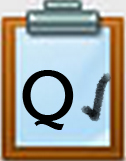Q3 Present and Publish: PowerPoint Slides
FINISHING YOUR PRESENTATION
Step 1. When your presentation is completed, check to see if you have met the assigned rubric or list of requirements (number of slides, time limit, type of final format, such as .pptx and .PDF by reviewing them with your teacher
Step 2. Practice makes a huge difference. You'll want to deliver a clear, informative, and/or persuasive, and captivating presentation with smooth transitions between each team member as you present.
- Begin by reviewing this 11.Q3 Presenting and Speaking Skills Checklist.
Step 3. Play the "How to make a narrated PowerPoint video!" to learn about one option for turning your presentation into a video file.
How to make a narrated PowerPoint video!
Direct link (1:23 min.)
Step 4. Select the link to the page below for the method you are using for working on your PowerPoint presentation. Check with your teacher if you are unsure.
Desktop App page to discover features and options for finishing your presentation using the app.
Online version of PowerPoint page to discover the options for finishing your presentation online.
Step 5. Return to this page when done, and make some Final Reflections.
Check with your teacher about reflecting on this experience. It might be a classroom discussion or writing a reflection about your experience.
A written reflection might include:
- Three new skills I learned by creating the presentation.
- Three things I learned about collaborating with a group.
- What I liked about doing this presentation activity.
Competencies & Standards
MITECS Michigan Integrated Technology Competencies for Students, and
1. Empowered Learner
a. Articulate and set personal learning goals, developing strategies leveraging technology to achieve them, and reflect on the learning process itself to improve learning outcomes
b. Build networks and customize their learning environments in ways that support the learning process
c. Use technology to seek feedback that informs and improves their practice and to demonstrate their learning in a variety of ways
d. Understand the fundamental concepts of technology operations, demonstrate the ability to choose, use and troubleshoot current technologies and are able to transfer their knowledge to explore emerging technologies
6. Creative Communicator
a. Choose the appropriate platforms and tools for meeting the desired objectives of their creation or communication
c. Communicate complex ideas clearly and effectively by creating or using a variety of digital objects such as visualizations, models or simulations
d. Publish or present content that customizes the message and medium for a variety of audiences
7. Global Collaborator
b. With guidance from an educator, students use technology tools to work with friends and with people outside their neighborhood, city and beyond
c. Contribute constructively to project teams, assuming various roles and responsibilities to work effectively toward a common goal
Websites and Documents
Websites
- Publish Your Presentation from OneDrive
- Simple Rules for Better PowerPoint Presentations" from GCFGlobal.
Videos from Outside Sources
- 9 Must-Have Presentation Skills to Elevate Your Speaking Game" (2:28 min.)
- Favorite Tips and Tricks from Microsoft Teams YouTube (18:03 min.)
- Recording a PowerPoint Presentation with Voice-over and Saving it as a Movie File on YouTube (6:42)
- Make a narrated PowerPoint video
- Powerful Presentations Simply Stated (2:53 min.)
- Turn Your Presentation into a Video (Microsoft support page with 15-sec. video)
21t4s Videos
- 21t4s Powerpoint Desktop App: Practice, Rehearse, and Record with the Desktop app (11:45 min)
- 21t4s PowerPoint 365 ONLINE Practice, Rehearse, and Present with Video (7:43 min.)
21t4s Documents & Quizzes




